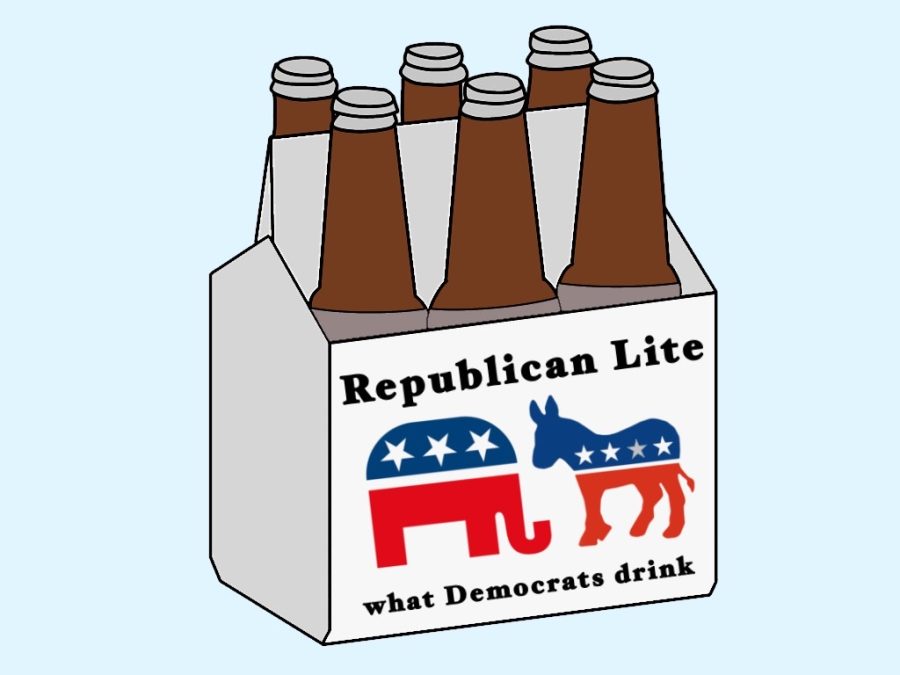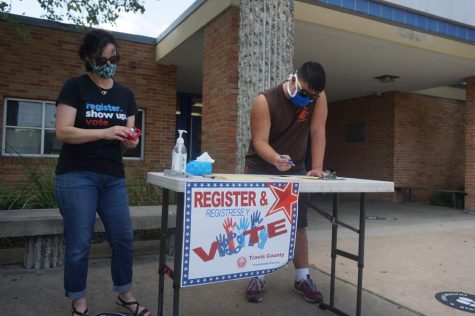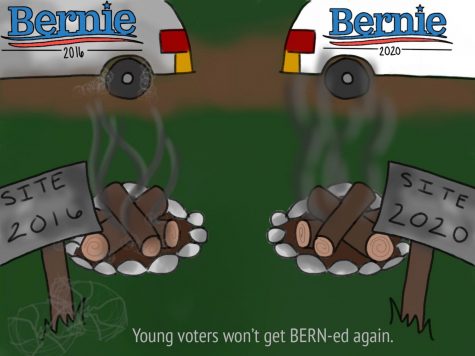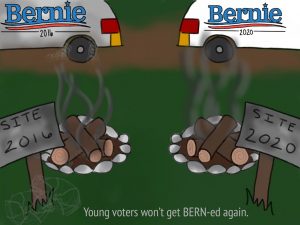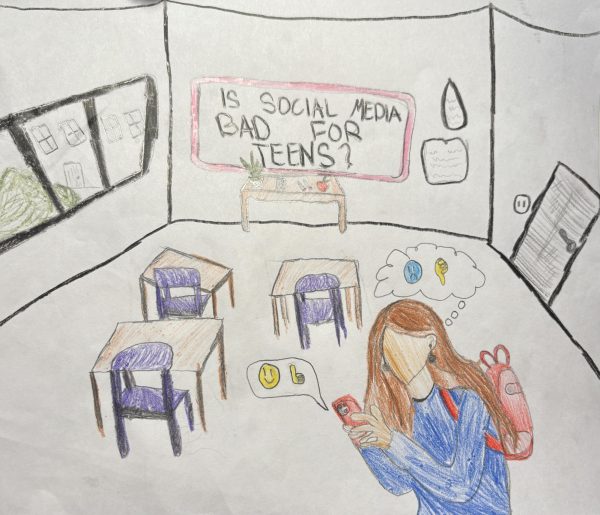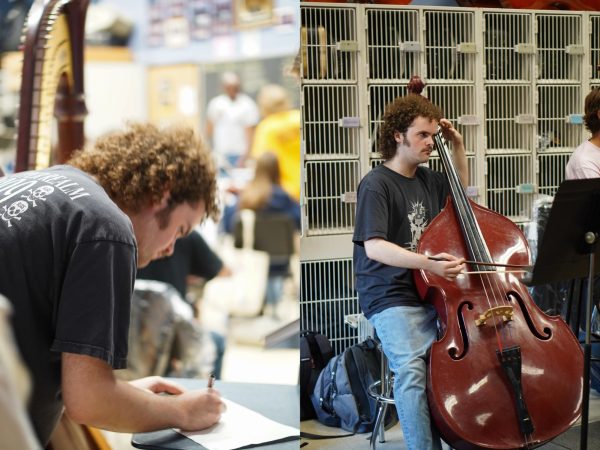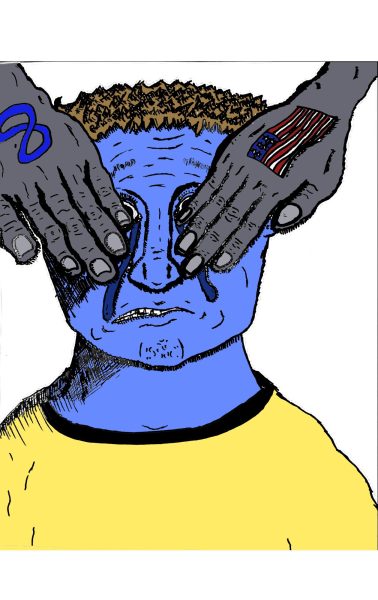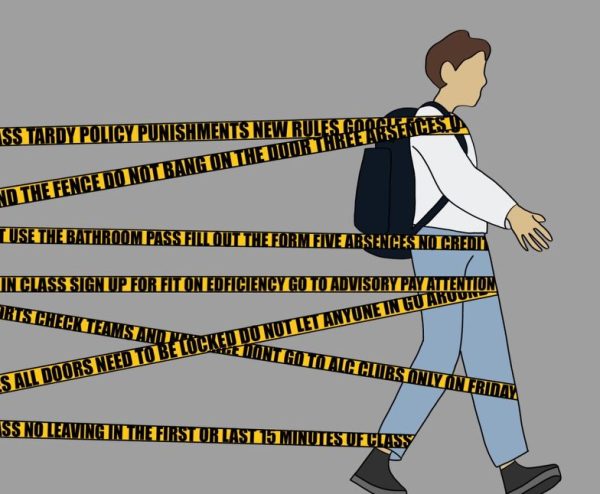The lighter of two evils
President Biden’s State of the Union address reveals more clearly than ever that he has far more in common with Republicans than he does with true progressives
President Biden’s policies have been more of a continuation of existing policies than a departure. His State of the Union address comments about policing are the clearest indication yet that he won’t fight for the agenda of the progressives who voted for him.
March 27, 2022
“Fund the police” has become the new dog whistle.
In his March 1 State of the Union address, President Biden unapologetically stated the following: “Let’s not abandon our streets. Or choose between safety and equal justice. We should all agree: The answer is not to defund the police. The answer is to fund the police. Fund them with resources and training they need to protect our communities.”
When it comes to our cycle of violence and policing system, besides a few exceptions, Democrats really aren’t that different than the Republicans.
There’s a lot to unpack here. And while I’m sure this remark made a lot of true progressives cringe in their seats, I think it’s important to acknowledge that Biden’s proclamation isn’t all that surprising. For a phrase largely attributed to the left, Biden and Harris have never explicitly called to defund the police. If progressives are surprised by Biden’s declaration to fund the police, it’s likely due to the many straw mans promoted by the Republican party falsely claiming Biden is anti-police, including Trump’s 2020 campaign which stated that a Biden/Harris administration would abolish the police completely. However, when it comes to our cycle of violence and policing system, besides a few exceptions, Democrats really aren’t that different than the Republicans — they’re both a part of the establishment.
I’ll begin with Biden’s notion of choosing “between safety and equal justice.” I’d argue that policing, and the criminal justice system as a whole, have never been about justice, but rather a system of control. In his book Discipline and Punish, Michel Foucault argues that our system functions because the law appears as a “necessity” while the power it exerts “conceals itself.” This analysis is key to understanding why both Democrats and Republicans have always been so quick to push “tough on crime” agendas in the name of justice: laws and punishment are the primary means of control for those in power. Ultimately, promoting equal justice is a form of self-preservation. Our criminal justice system hinges on the idea that people don’t question the grounds of the laws being created and if they actually do more harm than good.
What was so surprising about Biden’s comments in this address were not their content, but rather their directness: he fully pandered to his non-existent Republican audience.
I’ll move on to Biden’s declaration that “we should all agree” that funding the police is the “answer.” In a very Bidenesque appeal to the collective common sense and crippling bipartisan sentiments in our country, Biden declares that funding the police is the only sensible answer. This marks a new chapter of explicitness for the president. What was so surprising about Biden’s comments in this address were not their content, but rather their directness: instead of Biden beating around his centrist views on policing, he fully pandered to his non-existent Republican audience. This feels like putting salt into a still-fresh wound. Young radicals and progressive organizations who supported Biden (despite likely wanting a different candidate on the ballot) grasped onto the hope that once in power, Biden may actually do something for the disenfranchised people he vowed to protect. Instead, he resumed the role of oppressor. The cycle of social control proliferates, running on a seemingly endless supply of empty promises.
But how long can empty promises really placate someone? I voted for the first time this year. As I walked up to the polling booth situated at my old elementary school, I should have felt excited. But as I recalled how spineless our pseudo-progressive leaders have been, I instead felt utterly and completely disenfranchised. And while the optimist in me likes to think maybe next time it will be different, at the end of the day, it’s us against them. Until we begin to see lucidly and question the very power vowing to protect us, the chains of social control will continue to tie us down, even as we wave our little red, white and blue flags and shout “America — land of the free!”



